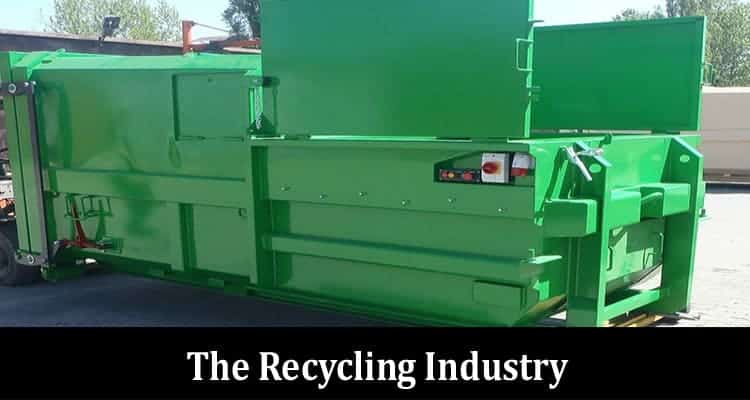Environmental sustainability in our days is a global imperative, the recycling industry emerges as a cornerstone for positive change.
The efficient waste management is not only reducing the strain on landfills but also contributing significantly to our planet’s safety.
Among of endless technologies and equipment employed in waste management, landfill compactors play a pivotal role.
With a specific focus on landfill compactors and refuse compactors, the recycling industry works out with key components that contribute to the industry’s sustainability efforts.
Recycling Industry’s Environmental Developing
The recycling industry serves as a pillar in the ongoing battle for environmental conservation.
As the world struggles with the consequences of excessive waste generation, recycling provides a crucial solution to reduce environmental impact.
Recycling not only takes off waste from landfills but also saves valuable resources by repurposing materials for new uses. Recycling industry is balanced to play an even more significant role in global sustainability efforts in the future.
Waste Managing with Landfill Compactors
At the heart of the recycling process lies the challenge of managing waste in landfills responsibly.
Landfill compactors, for example like Bomag at https://sts-global.com/stories/bomag-refuse-compactor, are instrumental in this endeavor, offering a solution to reduce the volume of waste and create more efficient landfill spaces. These heavy-duty machines use compressing force to compact waste materials, minimizing required disposal space.
As landfill sites become more and more increasingly limited and responsible waste management needs grow, landfill compactors stand as essential tools in ensuring that limited space is used efficiently.
Managing Landfills
Landfill or refuse compactors, a vital subset of waste management machinery, contribute Landfill or refuse compactors, a vital subset of waste management machinery, contribute significantly to the recycling industry’s efficiency and environmental impact.
This heavy-duty equipment is designed to handle a variety of waste streams, from household refuse to industrial waste.
By significantly waste products compacting, refuse compactors reduce the volume of material, easing the transportation load and landfill capacities. Refuse compactors integration into waste management systems enhances the industry’s ability to meet the demands of a diverse and dynamic waste landscape.
The Industry’s Environmental Future
Looking ahead, the recycling industry faces both challenges and opportunities in its search for a sustainable future. Climate change, resource depletion, and pollution are pressing issues innovative solutions demand constantly.
The recycling sector, with its waste reduction’s commitment, resource conservation and disposal reliability is well-placed to be a key player in those challenges addressing.
Driving Sustainability with Innovations
In a sustainable future pursuit, the recycling industry continually embraces innovations. From advanced sorting technologies to the integration of artificial intelligence in waste management processes, innovation is reshaping the landscape.
Refuse compactors, equipped with state-of-the-art features, contribute to this trend.
Innovative control systems, telemetry solutions and real-time monitoring capabilities elevate a waste compaction’s efficiency and minimise a recycling process environmental footprint.
Challenges and Opportunities
While the recycling industry has made significant strides, challenges persist.
Recycle product’s pollution, poor infrastructure, and a need for public awareness increasing are hurdles that require collective efforts to overcome.
However, these challenges also present opportunities for growth and improvement.
Research and development’s investments, public education campaigns and strategic partnerships can promote the recycling industry toward a more sustainable and resilient future.
Public Engagement and Awareness
Crucial to the success of the recycling industry’s environmental endeavors is public engagement and awareness.
Society’s educating about the importance of recycling, proper waste disposal proceeding and refuse compactors developing fosters a culture of responsibility. Governments, businesses and individuals must cooperate together to create a mindset shift towards sustainable consumption and waste management.
In summary
As we stand at the crossroads of environmental stewardship, the recycling industry emerges as a beacon of hope. Landfill compactors and refuse compactors, with their distinct roles in waste management, play integral parts in shaping a sustainable future.
Through innovation, responsible waste handling, and public engagement, the recycling industry is not only addressing current environmental challenges but also paving the way for a future where waste is minimized, resources are conserved, and the planet thrives.
The journey towards a sustainable tomorrow is a collective effort, and the recycling industry stands ready to lead the way.


